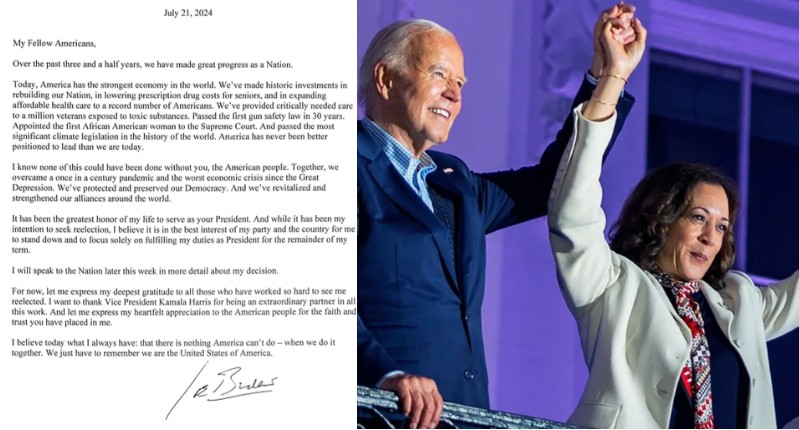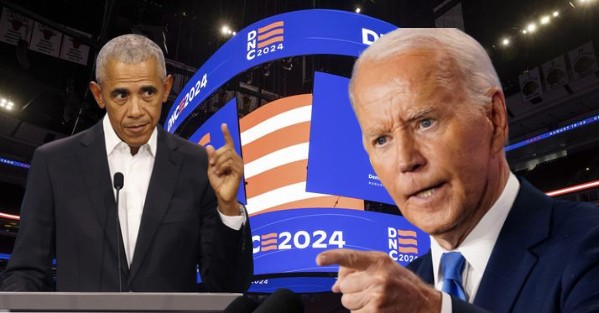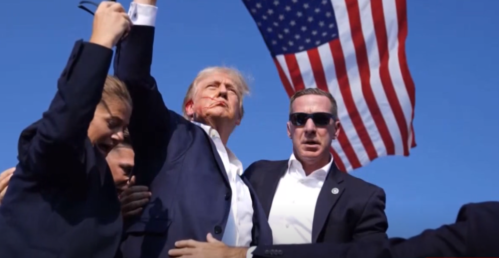U.S. Border Patrol Union Endorses Bipartisan Border Legislation, A Blow to Trump and Republicans
In an unexpected twist, the U.S. Border Patrol union has delivered a game-changing endorsement to a bipartisan border legislation, dealing a substantial setback to Donald Trump and his Republican allies. This surprising show of support is poised to reshape the political landscape, introducing a complex dynamic to the ongoing debate on immigration policies. As the U.S. Border Patrol Union aligns itself with the bipartisan approach, it not only challenges the traditional narratives but also disrupts Republican strategies aimed at leveraging immigration as a key campaign issue. This endorsement’s ripple effect could prove pivotal in shaping public opinion and influencing policy discussions, marking a critical turning point in the ongoing political discourse surrounding border security.
The U.S. Border Patrol union’s official endorsement of bipartisan border legislation adds a layer of complexity to Republican efforts to thwart the bill and undermine President Biden’s agenda. This strategic move by the U.S. Border Patrol Union introduces an unexpected obstacle, forcing Republicans to recalibrate their approach to immigration as a focal point of their campaign strategy. The endorsement not only highlights a division within the conservative camp but also underscores the significance of bipartisan cooperation in addressing crucial national issues. As Republicans grapple with this unforeseen challenge, the landscape of the political battle over immigration takes on a new dimension, emphasizing the evolving dynamics and the role of unexpected alliances in shaping policy outcomes.
McConnell’s Admission and Republican Concerns, Fear of Losing Immigration Ground to Biden
In a candid revelation, Senate Minority Leader Mitch McConnell openly acknowledged the deep-seated concerns within the Republican party regarding border legislation under President Biden. This admission provides a glimpse into the party’s apprehension, revealing a strategic fear that lies at the intersection of politics and policy. Recognizing that former President Trump’s political narrative has been significantly intertwined with immigration matters, Republicans understand that effectively addressing these issues could potentially leave Trump without a prominent campaign platform. This insight sheds light on the motivations behind their concerted efforts to obstruct the proposed border bill, as they seek to maintain a potent political narrative that resonates with their base.
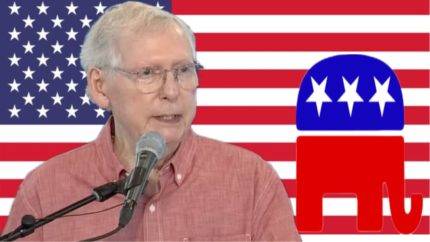
Adding a layer of complexity to this dynamic, the unexpected setback of the U.S. Border Patrol union’s endorsement further intensifies the challenges faced by Republicans in their opposition to the bill. The endorsement, typically seen as a stronghold for conservative values, now aligns with the proposed legislation, creating a nuanced landscape for GOP strategists. This unforeseen development adds an intriguing twist to the political chess game, as Republicans navigate the delicate balance between their traditional base and the evolving dynamics of immigration policies. McConnell’s acknowledgment and the unexpected union endorsement create a compelling narrative that underscores the intricacies of political maneuvering and the high stakes involved in shaping the party’s stance on crucial policy matters.
Republican Attacks on the Proposed Bill, Unfounded Criticisms and Whining
In a heated response to the bipartisan border legislation, Republicans in Congress have vehemently criticized the bill, arguing that it falls short of addressing crucial issues. However, a closer examination reveals that their objections may be rooted more in political strategy than genuine substantive concerns. This wave of criticism, while garnering attention, lacks the depth necessary for a comprehensive evaluation of the legislation’s merits. By emphasizing the apparent misalignment between the Republican critiques and the National Border Patrol Council’s endorsement, this analysis aims to highlight the potential political motivations behind the opposition.
Despite the Republican backlash, the National Border Patrol Council’s endorsement offers a contrasting perspective, indicating a level of support that may be overlooked in the broader discourse. This endorsement suggests that there might be nuances and benefits within the legislation that align with the priorities of the border patrol union. By underscoring this endorsement, the analysis aims to provide a balanced perspective on the legislation, urging readers to consider both sides of the debate and prompting a more nuanced understanding of the complex issues surrounding the bipartisan border legislation.
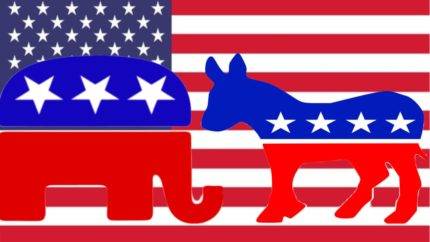
National Border Patrol Council’s Support, A Significant Endorsement with 18,000 Agents
In a significant development, the National Border Patrol Council, a formidable entity comprising 18,000 agents, has thrown its support behind the proposed bill. This influential endorsement gains particular significance given the union’s notable backing of Trump during the 2020 elections and its recurrent criticisms of President Biden. The union’s claim that the legislation will effectively diminish illegal border crossings across the country serves as a noteworthy counterpoint to the prevailing Republican narrative. This dynamic underscores potential political complexities within the party, as differing perspectives on the bill emerge, raising questions about its broader implications.
The National Border Patrol Council’s stance introduces a compelling narrative to the ongoing discourse on the proposed legislation. By aligning itself with the bill and challenging prevailing Republican sentiments, the union not only adds weight to the bill’s credibility but also signals a potential shift in political alliances. This development highlights the nuanced nature of border security discussions, emphasizing the multifaceted perspectives within the political landscape. As the U.S. Border Patrol Union’s endorsement takes center stage, the intricacies of political maneuvering become apparent, creating a compelling storyline that may impact both public opinion and the legislative trajectory of the proposed bill.
Brandon Judd’s Optimistic Outlook on the Border Act of 2024
In a candid assessment, Brandon Judd, the president of the National Border Patrol Council, offers a nuanced perspective on the Border Act of 2024. Despite acknowledging its imperfections, Judd views the legislation as a crucial advancement in addressing border challenges. His endorsement signals a pragmatic approach, recognizing the necessity of improving the existing framework. By highlighting the bill’s superiority over the current status quo, Judd underscores the urgency for swift legislative action, echoing the sentiments of many within the union.

Judd’s optimism stems from a recognition of the incremental progress embodied in the Border Act of 2024. He sees it as a vital step forward in navigating the complexities of border security. His hopeful outlook resonates with the union’s commitment to pragmatic solutions, prioritizing tangible advancements over ideological standoffs. Through his endorsement, Judd underscores the imperative for bipartisan cooperation in addressing pressing border issues, setting a tone for constructive dialogue and effective policymaking.
Navigating Political Narratives, MAGA’s Response to U.S. Border Patrol Union’s Endorsement
The endorsement from the U.S. Border Patrol union poses a significant challenge for the MAGA camp as they strive to shape the immigration narrative to fit their agenda. This unexpected support for bipartisan border legislation disrupts their efforts to discredit President Biden’s policies. With the political landscape in flux, MAGA finds itself at a crossroads, needing to strategize adeptly to retain control over the discourse on immigration. They must now confront the endorsement that contradicts their previous attempts to undermine and sabotage legislative efforts, requiring a careful recalibration of their messaging and tactics.
Amidst this shifting terrain, MAGA faces the daunting task of maintaining its influence over public opinion regarding immigration. As they grapple with the U.S. Border Patrol Union’s backing of bipartisan legislation, they must reassess their approach to framing the issue in a way that aligns with their overarching goals. This endorsement challenges their ability to control the narrative, forcing them to adapt their strategies to the evolving political landscape. In the face of this unexpected development, MAGA must demonstrate agility and resilience to effectively respond and shape the discourse surrounding immigration policy.
Table of Contents
Discover more from OGM News NG
Subscribe to get the latest posts sent to your email.












